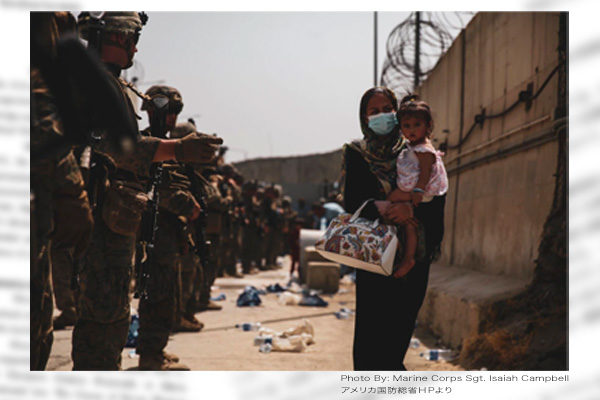What it boils down to is that U.S. military, the most powerful in the world, was defeated in a 20-year war with the Afghan Taliban which is nothing more than one of Islamic fundamentalist groups. A Taliban spokesman has indicated that the Taliban would flexibly respond to the international concerns. However, given that the previous Taliban regime destroyed two giant stone Buddhas in Bamiyan, central Afghanistan, under the so-called iconoclasm, it is hardly conceivable that the same group would abruptly adopt a moderate line. Any change in its attitude might be a temporary tactical shift to a low profile to get international aid.
Preventing a hotbed for terrorists is a matter of concern
The greatest matter of concern to the international community will be how to prevent Afghanistan from becoming a hotbed for terrorists again. As far as the Taliban maintains its traditional line, however, the prevention might be difficult. In fact, the Front for the Conquest of Syria, a radical Syrian Islamic group that was formerly called the Al-Nusra Front, has issued a statement celebrating the Taliban takeover of Afghanistan. It is difficult to guarantee that remnants of al-Qaeda and Islamic State terrorists that are inactive for now would never gather in Afghanistan.
Pakistan attracts lots of attention as the country that can exert the greatest influence on the Taliban. Its Inter-Services Intelligence has provided shelter to Taliban cadres over the past decades. Osama bin Laden, who orchestrated the September 2001 terrorist attacks on the United States, was provided safe haven for years and was killed by U.S. special forces in Pakistan. We must not forget that Pakistan is the world’s seventh largest nuclear power possessing about 150 nuclear weapons as of 2019.
U.S. President Joe Biden now faces a new challenge to confront with international terrorism while addressing China within the framework of confrontation between democracy and autocracy. China is plagued with a similar situation. Its Foreign Minister Wang Yi has made remarkable diplomatic moves regarding the Taliban. This is because China as well faces difficult challenges such as how to deal with the East Turkestan Islamic Movement, a Uyghur Islamic extremist organization suspected to have close relations with the Taliban, and how to position Afghanistan in the Belt and Road Initiative to expand China’s sphere of influence.
How will the democracy-autocracy conflict change?
Just after the 9-11 terrorist attacks on the United States, then Chinese Foreign Minister Tang Jiaxuan flew to Washington for talks with then U.S. President George W. Bush on September 23. In the next month, Bush met with then Chinese President Jiang Zemin in Shanghai. In 2002, Jiang called on Bush at the latter’s residence in Texas. On these occasions, the U.S. and Chinese leaders discussed how to deal with international terrorism.
As the U.S. and China want to prevent Afghanistan from becoming their common enemy as a breeding place for terrorists, Afghanistan under Taliban may provide some elasticity to the U.S.-China confrontation framework of democracy vs. autocracy.
Tadae Takubo is Vice President, Japan Institute for National Fundamentals and a professor emeritus at Kyorin University.


